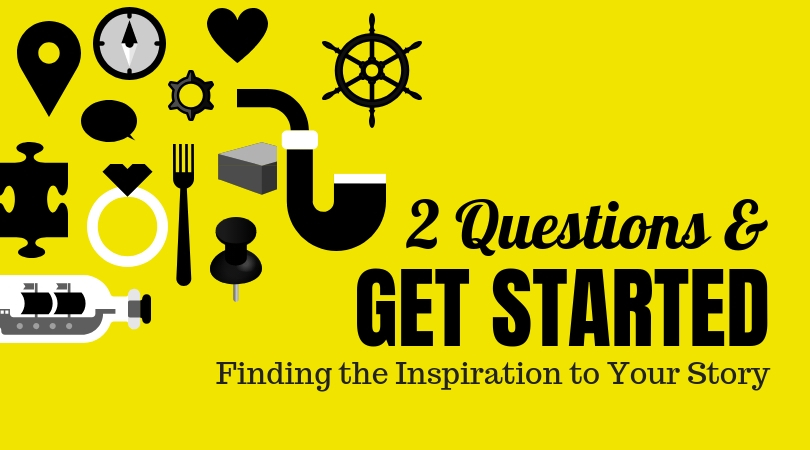Finding Your Story
Adventure and quietude are two environments in which I find story. You might think they are polar opposites but they’re more like layers of a cake. When icing and sponge alternate, the entire cake tells a delectable story.

Some people have told me that it’s easy for them to find an interesting story idea when they’re on holiday, or doing something that feels exciting. However, they struggle to find a decent idea during boring day to day activities.
Quietude is a blessing for a writer, because then you can be alone with your thoughts.
Whatever your daily activity, be attentive to the world around you. What are people talking about? That will help you figure out what kind of story people will empathize with. How do they talk? Noticing details about a person, both verbal and non-verbals, helps authors create characters who are unique and not stereotypes.
The Simplest Things Create a Story
Consider an item in your home. It is a “thing” that’s connected to the history of it being invented, the person/persons who patented it, the people who made it, the culture that orchestrated a need for it, and the impact the item has on the world at large. Nothing exists in isolation.
Then put your brainstorming hat on and see what happens!
The story “Button, Button” by Richard Matheson asks the question, “What if you’d receive $50 000 very time you pushed a button, but someone had to die?” This inspired a Twilight Zone episode by the same name, and a movie with a very different outcome called “The Box.” I don’t know what inspired him, but the short story’s central object is a button – the kind that might be on a game show, held within a glass-domed box. When seen through a creative lens, every day objects hold worlds of wonderment.
Ask Two Questions
In finding their story, one of the most important questions an author can ask to create a story is, “What if?“
What if magic was real? What if sharks could be transported by tornadoes? What would happen if two enemy soldiers were stranded on the same planet?
Whether you begin your story with character development or with world building, there are limitless avenues to pursue with asking this simple question. Have fun brainstorming with versions of your “What if” questions. For example: what if magic was real but it killed the caster when used? Or: what if magic was real but only accessible to one person?
The more “What if” questions you pose, the more likely you are going to come up with a unique setting, character, world, or plot that will attract readers’ attention, even if the trope or theme has been done before.
Another key question is, “Why?”
Why would a child want to talk to a ghost? Why did someone murder a passenger on a train? Why would two young people from feuding families agree to get married and run away together, leaving behind everything?
Why is the meaty question. The deeper you dig for answers, the more meaningful the relationships between your characters becomes.
Think of Romeo and Juliet, referenced in my last “Why” example. “Because they’re in love” is only the superficial answer. There’s a lot to unpack in their relationship besides “love at first sight.” Romeo is a young man who enjoys the chase of courtship. At the start of the play he’s enamored with Rosalind but his heart changes its love song when he spies Juliet, daughter of his father’s enemy. Juliet doesn’t want to be married, for she feels she is too young. She changes her tune when Romeo enters her life and sweeps her off her feet.
Why also helps streamline plotting, often in a cause-and-effect relationship. Turn your muse into a four-year-old who keeps asking, “Why?”
Here’s an example you might recognize:
Two robots crashed on a planet.
Why?
To find a recluse who lives there.
Why?
He lives there to protect a farmboy.
Why?
The boy’s father is Darth Vader.
And so on. Of course, viewers don’t learn in the beginning of the story that the boy’s father is Vader. However, asking questions like “What if” and “Why” helps authors find their story and its beginning.
Inspiration is Everywhere
I’ve created a list of 10 ways to find inspiration from home, including examples from professional authors that you can have for free. Simply click on the link and tell me where to send it.
Both adventure and quietude are necessary for that perfect idea, just as icing and sponge are for a cake.
However, much as writers and authors need to allow themselves the freedom to find story ideas everywhere around them, they also need to make the choice to do something with it. That’s where so many people get caught – in the procrastination of creation.
Next week, I’ll talk about breaking the procrastination curse.
Where do you find your story ideas?


Recent Comments